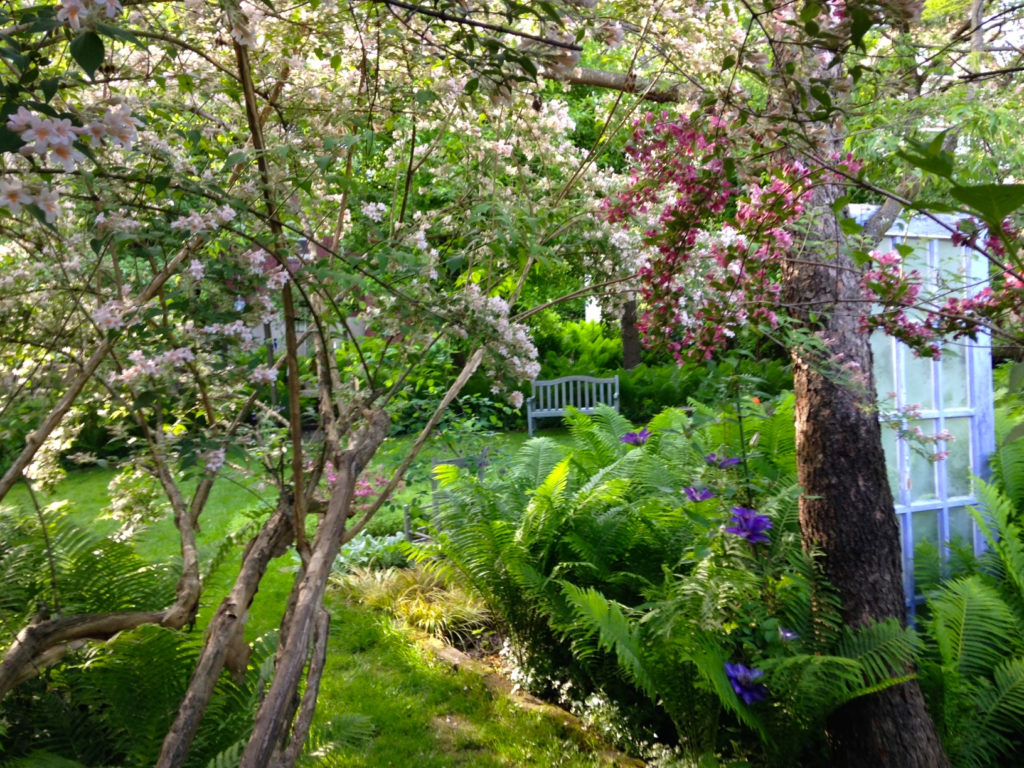Just last fall, I couldn’t write fast enough to keep up with words that came—came for nearly a year, water after a dam breaking, quenching the barren silence I thought would not return. Every time this happens, I think I’m in the clear at last, as if silence is an addiction I’ve finally beaten back.
But once again, days of not writing stretch to weeks, then months. Silence becomes emptiness, and emptiness becomes a sensation that I carry inside me. How does it look, the place where the words are pent? The dam that holds them back, I know its texture and composition—thick, stringy muscle, the kind that starts in the neck and reaches up to the skull. I’ve seen those diagrams in the chiropractor’s office, waiting for the doctor to pull my body from its hunched posture, evidence of years bent over book, desk, notebook, laptop.
Though the dam is muscle, the place where the words stay is smooth and empty, polished bone. Its emptiness is what I carry inside. How can it be both empty and full of all the words that will not come? It is like the skull without a brain inside, a rib cage without a heart. It’s arid as hell. It never lets me forget that it’s a real place.
And where is this place? In the body, without doubt—and not in a single location. It floats effortlessly from head to heart to hand, bumps against the liver and lights, flutters around the reproductive organs, circulates through the blood. I wonder that it doesn’t kill me, this hard marble passing through the tiniest vessels, pinging off the cells. It stops my throat as I am reading, a constriction that I interpret to mean you will never write again.
 When I walk in the garden I feel it rolling around inside, growing smoother and harder. I stoop to weed and feel it knock against my heart, knock when I look up and see the neighbor’s scruffy tom pluck a bird right out of the air. I cry out, and the cat startles, drops the bird, leaps into the brush.
When I walk in the garden I feel it rolling around inside, growing smoother and harder. I stoop to weed and feel it knock against my heart, knock when I look up and see the neighbor’s scruffy tom pluck a bird right out of the air. I cry out, and the cat startles, drops the bird, leaps into the brush.
I pick the bird out of the grass—a finch—and turn it from side to side. Its black legs like twigs poke from its underbelly. Its head is wet, a red smear that looks like blood but may be feathers. Its heart is pounding. I sit on the step, cupping it in my palm. I think I can do this much, keep it from harm until it dies. It watches me, its eyes black and sharp. After a moment, the lids flutter closed. Its heart slows. The cat comes out of the bushes, flops into the grass, licks his front paws. Five minutes pass, then ten. My husband, who’s been weeding the bed of Casablanca lilies, walks over, looks into my hand, says, “Bird’s a goner, I’m afraid.”
The bird seems both dead and alive. Its stiff legs don’t move, even when I brush them with my finger; immobile are the passerine toes, two forward, one back, an ingenious clamp. Its eyes remain closed. My hand is its bier. But though I wait for it to falter, the rhythm of its heart stays steady as my own pulse. I catch myself wondering how long this is going to take, feeling guilty because this is an amazing moment of communion with nature, etc. and here I am, thinking about what I need to do, what needs to be accomplished before the day is over. I’ve sat beside the dying; I know that ushering someone out of this world is as important and meaningful as ushering someone in. Even a bird deserves that respect.
I scowl at the cat and wonder why my neighbor won’t keep him inside. Sitting idle seems odd. Usually when I’m in the backyard, I’m working—weeding, planting, mowing—or waiting for my two red dogs to finish their business. What’s the point of carving out this green oasis, if one never has time to enjoy it? And will the poor bird’s heart never falter? I look away from the bird, at the honeysuckle arching over the path, fragrant with blossom.
The heart doesn’t falter. One minute I’m sitting on the step with the bird on its back in my hand. The next minute it’s shot into the apple tree over my head, and then airborne, it’s on to the rest of its life.
- Guest Post, Charlotte Holmes: On Not Writing - June 15, 2016
- Guest Post, Charlotte Holmes: Post-partum Depression and the Terminal Degree - July 3, 2014